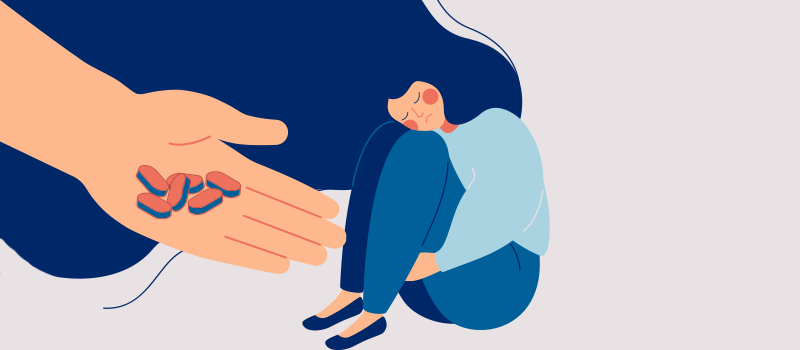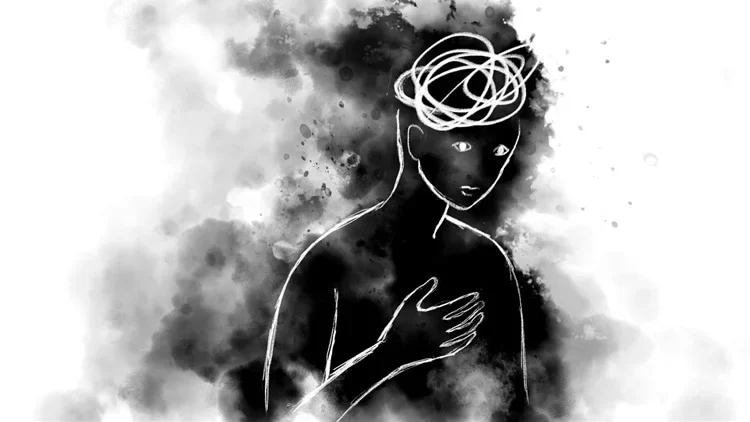Post-Traumatic Stress Disorder (PTSD) is a serious mental health condition that often follows a traumatic event. This disorder affects many people, leading to significant emotional and psychological distress.
Understanding PTSD is essential for those who may be experiencing it or supporting someone who is. This article will explore the symptoms, causes, and treatment options for PTSD, providing valuable insights into managing and overcoming this condition.
What is PTSD?
PTSD occurs when an individual experiences or witnesses a traumatic event, such as a natural disaster, serious accident, assault, or combat. The event is often life-threatening or deeply distressing. For some, the impact of the trauma lingers long after the event has passed, leading to persistent and troubling symptoms. It can disrupt daily life, affecting personal relationships and overall well-being.
Recognizing PTSD Symptoms
Identifying PTSD symptoms can be challenging, as they vary from person to person. However, there are common signs to be aware of:
- Re-experiencing Trauma: Individuals may have flashbacks, where they feel as though they are reliving the traumatic event. Nightmares and intrusive memories are also common, causing distress and impacting sleep.
- Avoidance: People with PTSD might avoid places, people, or activities that remind them of the trauma. They may also avoid talking about their feelings or the event itself.
- Negative Mood Changes: It can lead to feelings of hopelessness, guilt, or shame. Individuals might struggle to experience positive emotions or feel emotionally numb.
- Increased Arousal: This includes heightened alertness, irritability, and trouble sleeping. Individuals might also experience difficulty concentrating and have exaggerated startle responses.
Causes and Risk Factors

Several factors can contribute to the development of PTSD, including:
- Severity of Trauma: More intense or prolonged trauma increases the risk of developing PTSD. The impact is often greater with events that involve severe harm or threat to life.
- Previous Trauma: A history of trauma or mental health issues can increase vulnerability. Past experiences can influence how a person reacts to new traumatic events.
- Lack of Support: Limited support from friends, family, or community can make it harder for individuals to process trauma and recover from it.
- Genetic Factors: Some research suggests that genetics may play a role in a person’s susceptibility to PTSD.
Treatment and Management
Addressing PTSD involves several approaches that can help manage symptoms and support recovery:
- Therapy: Professional counseling is one of the most effective treatments. Cognitive Behavioral Therapy (CBT) helps individuals identify and change negative thought patterns and behaviors related to the trauma. Eye Movement Desensitization and Reprocessing (EMDR) is another therapy that helps process and reduce the emotional impact of traumatic memories.
- Medication: Certain medications can alleviate the symptoms. Antidepressants and anti-anxiety medications are commonly prescribed to help manage mood and anxiety symptoms.
- Support Groups: Connecting with others who have experienced similar trauma can provide emotional support and practical advice. Support groups offer a sense of community and shared understanding.
- Self-Care: Engaging in self-care activities is crucial. Exercise, healthy eating, and regular sleep contribute to overall well-being and can help manage stress. Practices like mindfulness and relaxation techniques also support emotional health.
- Education and Awareness: Learning more about PTSD can empower individuals and their families. Understanding the disorder helps reduce stigma and encourages seeking help. Education provides valuable tools for managing symptoms and supporting recovery.
Moving Forward with Hope
Living with PTSD can be challenging, but recovery is possible. Recognizing symptoms early and seeking appropriate treatment can significantly improve quality of life. Support from mental health professionals, along with self-care and community resources, plays a vital role in managing the issue.
If you or someone you know is struggling with PTSD, reaching out for help is an important first step. Understanding and exploring treatment options can lead to a better path forward. Remember, you are not alone, and support is available to help navigate the journey toward healing and recovery.






